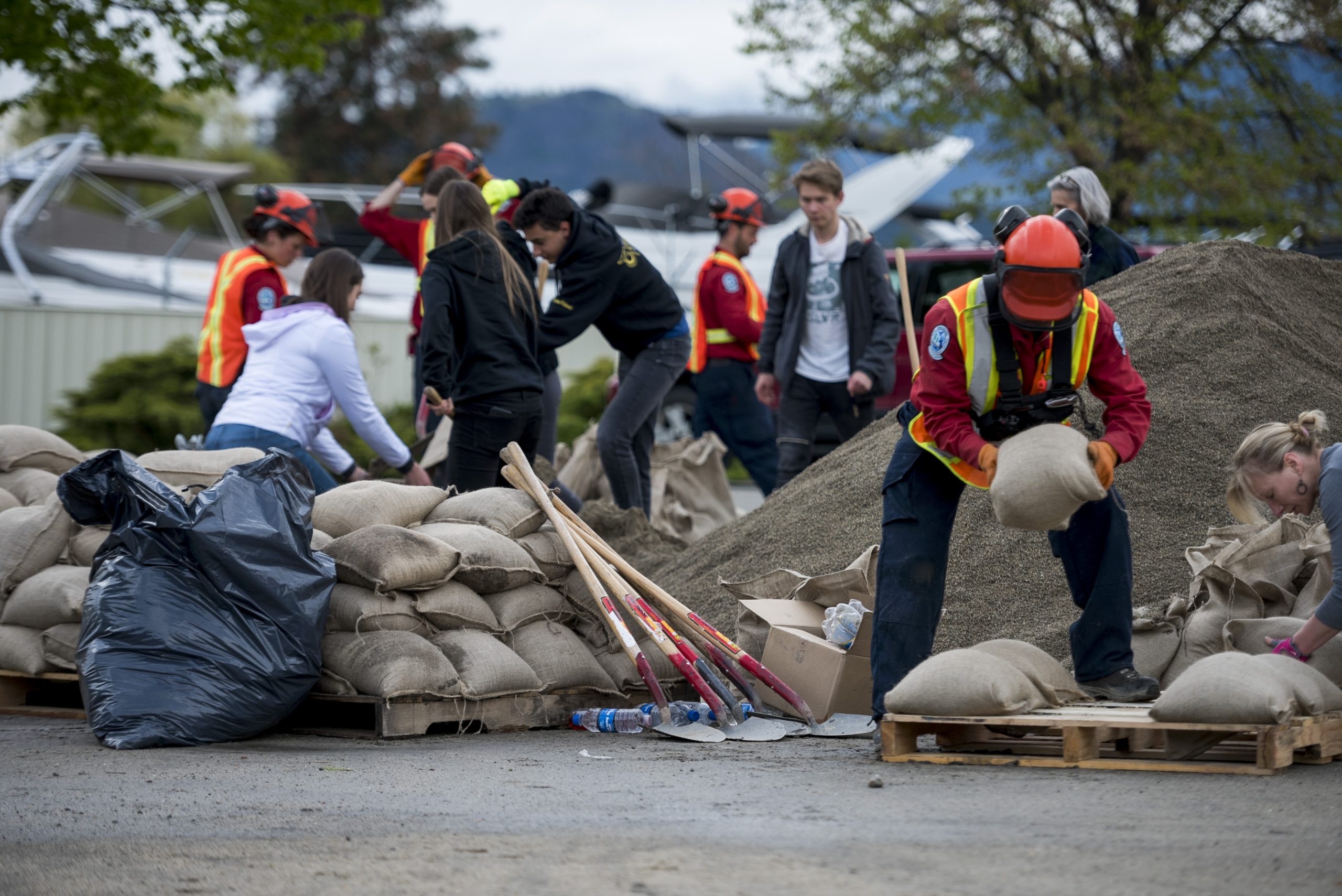
B.C. Flood Strategy
On this page…
Overview
Who: The Ministry of Land, Water and Resource Stewardship
What: A proposed Flood Strategy
Where: Province-wide
Why: To manage flood safety risks
How: Online
Engagement Summary
2024 engagement
The Province invited you to provide written feedback to advance Provincial flood policy guidance. The B.C. Flood Strategy was released publicly March 21, 2024.
Different types of guidance were being considered to advance collaboration toward integrated flood management planning. Four background documents spoke to the guidance topics. Feedback on these backgrounders will inform new policy, or further refine and update existing research to form Provincial policy in the future.
- Integrated Flood Management Planning (PDF, 100KB): Developing Integrated Flood Management Plans is a comprehensive and proactive way to manage flood risks across entire regions, like river basins or watersheds. The goal is to create a holistic flood management approach that considers the entire watershed and how different factors interact with flood risks and impacts.
- Design Guidelines for Nature-Based Solutions (PDF, 900KB): Engagement related to the B.C. Flood Strategy showed a growing interest in Nature-Based Solutions (NbS) to manage coastal and riverine flood as well as erosion risks. These solutions mimic natural processes and provide environmental and societal benefits.
- Wise Practices for Advancing First Nations and Local Government Partnerships (PDF, 100KB): Feedback from the B.C. Flood Strategy engagement and discussions with the Union of BC Municipalities (UBCM) reflect that First Nations and local governments need better guidance on how to collaborate in their shared watersheds to advance integrated flood management. This guidance is aimed at developing “wise practices” on relationship building, sharing examples of success, and understanding how First Nations and local governments can collaborate to help reduce flood risks across B.C.
- Economic Assessments and Decision-Making for Community-Led Managed Retreat in B.C. (PDF, 300KB): Community-led Managed Retreat (CLMR) involves relocating people and structures from high-risk areas, often including ecological restoration and land use changes, and is gaining attention as a viable option where traditional methods fall short. Guidance would support communities to carefully consider when, where and how to use CLRM in a way that increases community resilience, addresses equality, enhances ecosystems and minimizes negative impacts.
All people living in British Columbia, including First Nations and local governments, and employers, employees, organizations, professionals, and Indigenous communities were invited to make written submissions before December 20, 2024, at 4 pm.
2022/2023 engagement
The Province of British Columbia gathered feedback through an Intentions Paper on a proposed Flood Strategy that will manage flood safety risks in B.C.
Feedback was collected on a proposed B.C. Flood Strategy that will manage flood safety risks in the province.
Through an Intentions Paper, the purpose was to:
- Re-engage First Nations, Indigenous organizations, and local governments on the Intentions Paper
- With those groups, identify policy direction for planning
- Engage new audiences on the Intentions Paper
- An online survey was open from October 31, 2022 until January 6, 2023
- Written submissions were accepted from October 31, 2022 until January 27, 2023
Read the full Intentions Paper (PDF, 15MB) and the summary document (PDF, 5MB).
Results
Indigenous engagement
From October to December 2022, the Province met with First Nations and local governments together, through seven in-person and four virtual engagement sessions to seek feedback on the B.C. Flood Strategy Intentions Paper. Representation was inclusive of B.C.’s nine major watersheds and Indigenous language families.
Read the Indigenous Engagement Report (PDF, 2MB)
Key technical partners
In November 2022, the Province engaged with industry, non-governmental associations, academia, professional associations, and the public through two virtual workshops to inform and receive feedback on the B.C. Flood Strategy Intentions Paper.
Read the Key Technical Partners Engagement Report (PDF, 800KB)
Public engagement
Between October 2022 and January 27, 2023, a public survey was conducted and written submissions were accepted to gather feedback on the B.C. Flood Strategy Intentions Paper. The survey summary identifies the priority program areas of the Intentions Paper.
Read the Public Engagement Report (PDF, 3MB)
For more information, visit the B.C. Flood Strategy webpage.






